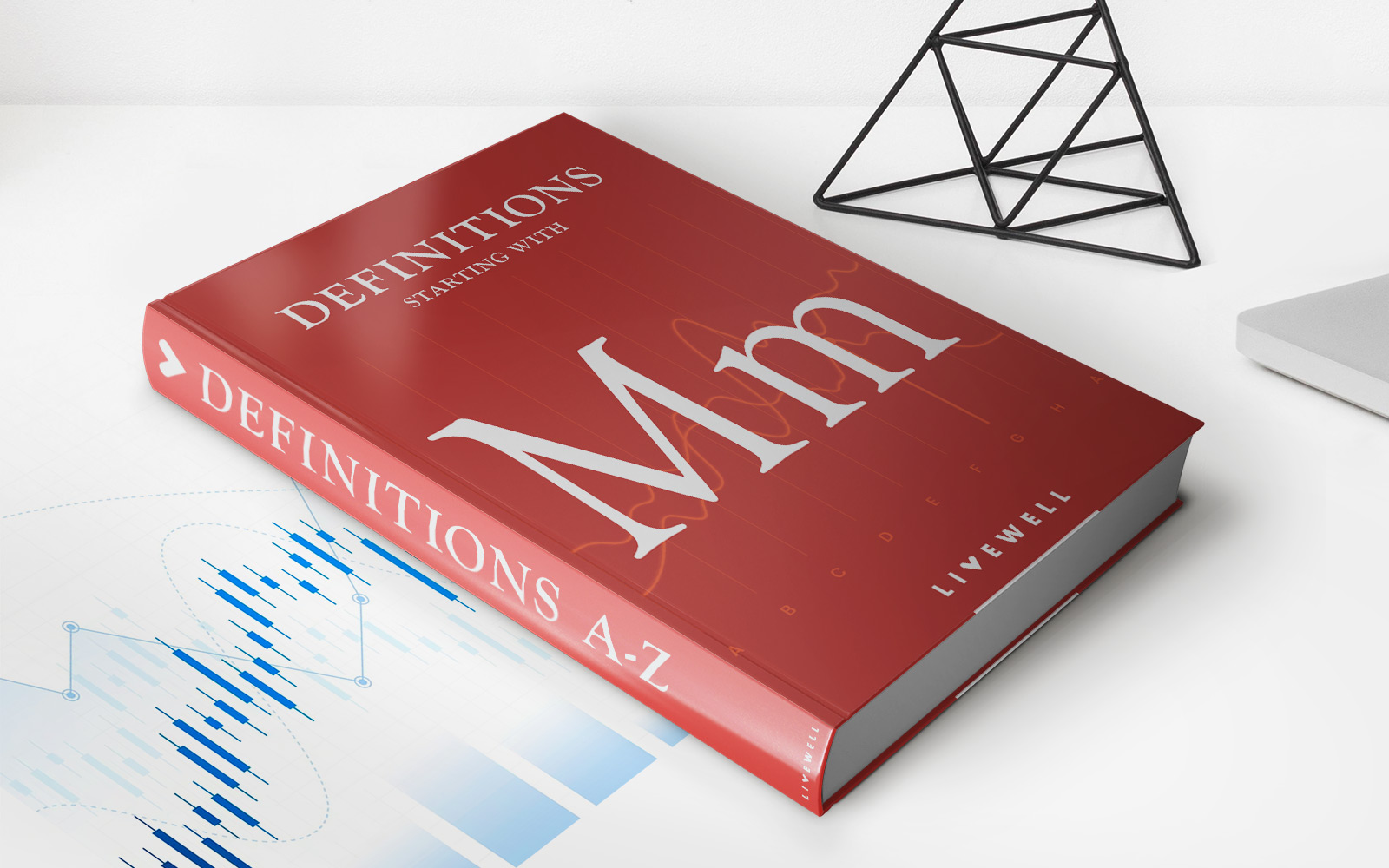

Finance
What Does AOR Mean In Insurance?
Modified: December 29, 2023
Learn what AOR means in insurance and how it relates to finance. Find out its significance and implications in the insurance industry.
(Many of the links in this article redirect to a specific reviewed product. Your purchase of these products through affiliate links helps to generate commission for LiveWell, at no extra cost. Learn more)
Table of Contents
Introduction
Welcome to the world of insurance, where complex jargons and abbreviations can often leave policyholders scratching their heads in confusion. One such abbreviation that you may come across in the insurance industry is AOR. But what does AOR mean in insurance? In this article, we will demystify the term AOR and provide you with a comprehensive understanding of its significance in the insurance landscape.
AOR is an acronym that stands for “Agent of Record.” An Agent of Record is an individual or entity designated by a policyholder to act as their representative in insurance matters. When a policyholder appoints an Agent of Record, it grants them the authority to handle their insurance policies and interact with insurance providers on their behalf.
It is important to note that the Agent of Record does not own the insurance policy but serves as a liaison between the policyholder and the insurance company. This arrangement simplifies communication and ensures that all relevant information flows smoothly between the two parties.
The concept of having an Agent of Record in the insurance industry is not new. It has been in practice for many years and has proven to be beneficial for both policyholders and insurance providers. This is because it streamlines administrative processes, improves customer service, and allows for a more personalized insurance experience.
In the following sections, we will delve deeper into the definition, purpose, and benefits of having an Agent of Record in the insurance industry. We will also highlight the challenges and limitations associated with this arrangement. By the end of this article, you will be equipped with the knowledge to make informed decisions regarding your insurance needs.
Definition of AOR in Insurance
When it comes to insurance, understanding the terminology is crucial. So, let’s get to the heart of what AOR means in the insurance industry.
An Agent of Record (AOR) is a designated representative, such as an insurance agent or broker, authorized by a policyholder to manage their insurance policies and handle interactions with insurance carriers on their behalf. The AOR acts as a point of contact between the policyholder and the insurance company, facilitating communication and ensuring that all necessary information is accurately relayed.
An AOR agreement formalizes the relationship between the policyholder and the designated agent. This written agreement outlines the responsibilities and authority granted to the AOR, ensuring transparency and setting clear expectations for both parties.
The primary purpose of having an Agent of Record in the insurance industry is to centralize the management of insurance policies. Policyholders appoint an AOR to consolidate their insurance portfolio, making it easier to track, update, and make changes to their coverage. By having a single point of contact, policyholders can save time and effort in dealing with multiple insurance companies.
Additionally, an AOR plays a crucial role in insurance procurement. They help policyholders navigate the complex insurance landscape, assess their insurance needs, and find suitable coverage options. The AOR leverages their knowledge and expertise in the insurance industry to advise policyholders on the best insurance solutions for their specific requirements.
Insurance carriers also benefit from the AOR arrangement. Having a designated Agent of Record allows insurers to streamline their communication processes and ensure that policy information reaches the right channels promptly. This improves overall efficiency and enhances the customer experience by minimizing delays and facilitating smooth interactions.
Overall, the Agent of Record serves as a bridge between the policyholder and the insurance company, simplifying administrative tasks, improving communication, and ensuring that both parties have a clear understanding of their rights and responsibilities.
Purpose of AOR in Insurance
The purpose of having an Agent of Record (AOR) in the insurance industry goes beyond just managing policies. Let’s explore the key reasons why policyholders choose to designate an AOR and how it benefits both parties involved.
1. Streamlining Insurance Management: One of the primary purposes of an AOR is to simplify the management of insurance policies. By appointing an AOR, policyholders can consolidate all their insurance needs under one representative. This centralization makes it easier to keep track of policies, understand coverage details, and manage renewals and claims effectively.
2. Expert Guidance: Insurance can be complex, with various coverage options, policy terms, and exclusions. The AOR serves as a knowledgeable advisor who can guide policyholders through the insurance process. They have a deep understanding of the insurance industry and can help policyholders make informed decisions about their coverage needs.
3. Time and Effort Savings: Dealing with multiple insurance companies can be time-consuming and cumbersome. By appointing an AOR, policyholders can save time and effort by having a single point of contact for all their insurance-related matters. Instead of reaching out to different insurers, policyholders can rely on their AOR to handle policy inquiries, updates, and claims on their behalf.
4. Personalized Service: An AOR provides personalized service tailored to the policyholder’s unique needs. They take the time to understand the specific requirements and preferences of the policyholder, allowing them to recommend customized insurance solutions. This personalized approach ensures that policyholders receive coverage that aligns with their individual circumstances.
5. Enhanced Communication: Communication between policyholders and insurers can sometimes be challenging, leading to miscommunication or delays in information sharing. An AOR acts as an intermediary, ensuring that all relevant policy information is accurately communicated between the policyholder and the insurer. This helps minimize misunderstandings and ensures a smooth flow of communication throughout the policy lifecycle.
6. Advocacy and Support: In the event of a claim or dispute, having an AOR can be invaluable. The AOR serves as the policyholder’s advocate, working on their behalf to facilitate the claim process and ensure a fair resolution. They have the expertise to navigate complex claim procedures, negotiate with insurers, and provide support throughout the process.
By understanding the purpose of an AOR in insurance, policyholders can make an informed decision about whether appointing an AOR aligns with their insurance management goals and priorities. It provides a convenient and efficient way to streamline insurance processes, receive expert guidance, and ultimately enhance the overall insurance experience.
AOR Agreement and Roles
When designating an Agent of Record (AOR) in the insurance industry, it is essential to establish clear roles and responsibilities through an AOR agreement. This agreement outlines the terms and conditions of the relationship between the policyholder and the designated AOR. Let’s delve into the key components of an AOR agreement and the roles each party plays.
AOR Agreement: The AOR agreement is a formal contract that solidifies the relationship between the policyholder and the AOR. It specifies the scope of the authority granted to the AOR and clarifies the policyholder’s expectations. This written agreement helps to ensure transparency, avoids misunderstandings, and protects the interests of both parties.
Roles of the Policyholder: The policyholder is responsible for selecting an AOR that they trust and believe can effectively manage their insurance needs. They provide the necessary information to the AOR, including policy details, coverage requirements, and any changes that may occur during the policy term. The policyholder also has the responsibility of reviewing and approving policy documents, premiums, and claims-related matters.
Roles of the AOR: The AOR acts as the policyholder’s representative throughout the insurance process. Their primary role is to manage the policyholder’s insurance portfolio and handle communication with insurance carriers. This includes policy procurement, negotiation, renewal, and claim assistance. The AOR must stay up to date with changes in the insurance industry and provide expert guidance to the policyholder on appropriate coverage options.
When it comes to the AOR’s specific roles and responsibilities, they may vary depending on the agreement between the policyholder and the AOR. Some common responsibilities of the AOR include:
- Assisting the policyholder in selecting suitable insurance coverage based on their needs and circumstances
- Gathering and verifying accurate information required for policy applications
- Communicating with insurance carriers on behalf of the policyholder, including submitting applications, negotiating premiums, and addressing any policy-related queries
- Maintaining records of policies, renewals, and claims-related information
- Providing timely updates to the policyholder regarding any changes in the insurance landscape, policies, or regulations that may impact their coverage
- Assisting the policyholder throughout the claims process, including filing claims and supporting documentation, coordinating with insurers, and advocating for a fair resolution
- Ensuring confidentiality and maintaining the privacy of the policyholder’s sensitive information
Both the policyholder and the AOR must fulfill their respective roles to ensure a successful and mutually beneficial partnership. Open and transparent communication is key to maintaining a strong working relationship and achieving the desired objectives set forth in the AOR agreement.
Benefits of AOR in Insurance
Appointing an Agent of Record (AOR) in the insurance industry provides several benefits for both policyholders and insurance providers. Let’s explore some of the key advantages of having an AOR as part of your insurance management strategy.
1. Centralized Policy Management: One of the primary benefits of having an AOR is the convenience of centralized policy management. Instead of dealing with multiple insurance companies, policyholders can rely on their AOR to handle all their insurance needs. This streamlines the process of policy administration, making it easier to track, update, and make changes to coverage.
2. Time and Effort Savings: By designating an AOR, policyholders can save valuable time and effort. Rather than contacting different insurers individually, policyholders can turn to their AOR for all insurance-related matters. This allows them to focus on their core responsibilities while leaving the insurance management tasks to the AOR.
3. Expertise and Guidance: AORs have in-depth knowledge and experience in the insurance industry. They can provide expert guidance and recommendations for suitable insurance coverage based on the policyholder’s unique needs and circumstances. This ensures that policyholders make informed decisions about their coverage and receive personalized service tailored to their specific requirements.
4. Enhanced Negotiation Power: AORs have established relationships with insurance carriers, which can lead to more favorable terms and conditions for policyholders. They negotiate on behalf of the policyholder to obtain competitive premiums, broader coverage, or special policy endorsements. AORs leverage their industry expertise and understanding of insurance markets to secure the best possible outcomes for their clients.
5. Claims Assistance: When it comes to claims, having an AOR can be invaluable. They assist policyholders throughout the claims process, ensuring that all necessary documentation is submitted accurately and promptly. AORs act as advocates for policyholders, working to expedite the claims settlement process and maximize the policyholder’s reimbursement or compensation.
6. Improved Communication: An AOR acts as a single point of contact between the policyholder and the insurance company. This eliminates the need for policyholders to communicate with multiple carriers, reducing the risk of miscommunication or important details getting lost in translation. The AOR ensures that policy inquiries, updates, and claim-related information are effectively and efficiently conveyed between the parties.
7. Personalized Service: AORs offer personalized service tailored to the individual needs of policyholders. They take the time to understand the unique circumstances and requirements of each policyholder, enabling them to recommend customized insurance solutions. This level of personalization ensures that policyholders receive coverage that addresses their specific risks and exposures.
By leveraging the expertise and services of an AOR, policyholders can benefit from efficient insurance management, expert advice, and superior negotiation power. The AOR relationship contributes to a smoother insurance experience, ultimately providing peace of mind and financial protection for policyholders.
Challenges and Limitations of AOR in Insurance
While there are numerous benefits to having an Agent of Record (AOR) in insurance, it is important to recognize the challenges and limitations associated with this arrangement. Understanding these factors can help policyholders make informed decisions and effectively manage their insurance needs. Let’s explore some of the challenges and limitations of having an AOR.
1. Limited Pool of Insurance Carriers: A potential limitation of having an AOR is that they may have relationships with a limited number of insurance carriers. This means that policyholders may not have access to the full range of insurance options available in the market. It is important for policyholders to ensure that the AOR’s network of carriers aligns with their specific coverage requirements.
2. Potential Conflicts of Interest: AORs often earn commissions or fees from insurance carriers for placing policies with them. This arrangement may create potential conflicts of interest if the AOR receives higher incentives from certain carriers. Policyholders should be aware of these potential conflicts and ensure that their AOR recommends coverage solely based on their best interests.
3. Lack of Personalized Attention: While AORs offer personalized service, the level of attention may vary depending on the capacity and resources of the AOR. Policyholders should ensure that their AOR has the necessary bandwidth to provide the desired level of service and attention to their insurance needs.
4. Termination Process: Ending the relationship with an AOR can sometimes be challenging. Policyholders may face difficulties transitioning their policies to a new agent or broker, especially if there are ongoing claims or policy renewals. It is important for policyholders to review the termination process outlined in the AOR agreement before finalizing the arrangement.
5. Potential Communication Challenges: While the AOR acts as a point of contact, miscommunication can still occur between the policyholder, the AOR, and the insurance company. It is crucial for all parties to maintain clear and efficient lines of communication to avoid misunderstandings and ensure that information is accurately shared.
6. Dependence on AOR’s Expertise: Policyholders rely on the expertise of their AOR to navigate the insurance landscape and make informed decisions. However, this dependence can limit the policyholder’s knowledge and understanding of their own insurance policies. It is important for policyholders to actively engage in the insurance process, ask questions, and seek clarification to ensure they have a comprehensive understanding of their coverage.
7. Compatibility with Unique Insurance Needs: Some policyholders may have unique insurance requirements or specialized coverage needs. In such cases, finding an AOR who has expertise in the specific niche or industry can be challenging. Policyholders should ensure that their AOR has the necessary knowledge and experience to adequately address their unique insurance needs.
Despite these challenges and limitations, having an AOR can still provide significant benefits. The key is for policyholders to be aware of these potential drawbacks and actively manage the relationship with their AOR to ensure effective communication, transparency, and alignment with their insurance goals and objectives.
Conclusion
Understanding what AOR means in insurance is essential for policyholders looking to effectively manage their insurance needs. An Agent of Record (AOR) serves as the designated representative authorized to handle insurance policies and interactions on behalf of the policyholder. By appointing an AOR, policyholders can streamline their insurance management, benefit from expert guidance, and enhance their overall insurance experience.
The AOR agreement formalizes the relationship between the policyholder and the AOR, outlining roles and responsibilities. Policyholders rely on their AOR for centralized policy management, time savings, personalized service, and expertise in navigating the insurance landscape. AORs provide valuable assistance in policy procurement, negotiation, claims management, and advocacy for fair resolutions.
While there can be challenges and limitations associated with having an AOR, such as limited carrier options and potential conflicts of interest, being aware of these drawbacks can help policyholders make informed decisions and manage their insurance needs effectively.
In conclusion, having an Agent of Record in insurance can bring significant benefits to policyholders. From simplifying policy management to receiving expert advice and improved communication, an AOR can enhance the insurance experience and provide valuable support throughout the policy lifecycle.
Policyholders should carefully select an AOR who aligns with their needs, exercise open communication, and actively participate in the insurance process to fully leverage the advantages of having an AOR. By doing so, policyholders can navigate the complex insurance landscape with confidence, knowing that their insurance needs are being expertly managed by their designated Agent of Record.














